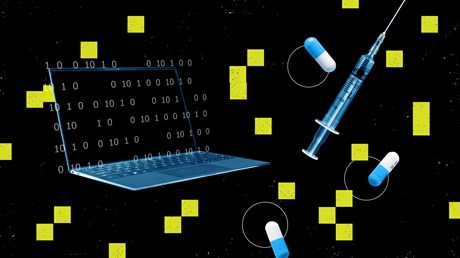Artificial intelligence can be helpful in fighting COVID-19. But there are ethical worries that cry out for Christian reflection.

We live in a “smart-everything” world. We have artificial intelligence (AI) at our fingertips for nearly every part of our day. From AI-based wearable technology to phones, tablets, computers, and even appliances, nearly every aspect of our lives is being tracked, recorded, and processed by some form of algorithmic technology. And there are incredible advantages to these technologies. We now have safer and more effective medical treatment and vaccine development. Our neighborhoods are more connected and safer than ever before because of video surveillance and various communication tools. Our homes are even more efficient and comfortable. And our families have convenient access to more information than previous generations could have imagined.
Before the onset of COVID-19, one popular narrative suggested that our technological progress might ultimately lead to the eradication of sickness, disease, and in some cases even death itself. In his New York Times best-seller Homo Deus: A Brief History of Tomorrow, world-renowned Israeli historian Yuval Noah Harari argues that, with small exceptions here and there, humanity has essentially overcome the big three problems that have plagued our lives since the dawn of civilization: famine, war, and plague. He then proudly predicts that we will shift our creative energies toward tackling two other major issues: happiness and death itself. Even granting that Harari’s views of humanity and technological progress are fairly extreme, there is widespread hope and hype surrounding the field of AI and its potential to remake our world.
But how does the turbulent and momentous year of 2020 fit into this grand vision of the future? So far, we have seen devastating famines in Africa, ...
from Christianity Today Magazine https://ift.tt/3ar1I7s
No comments:
Post a Comment